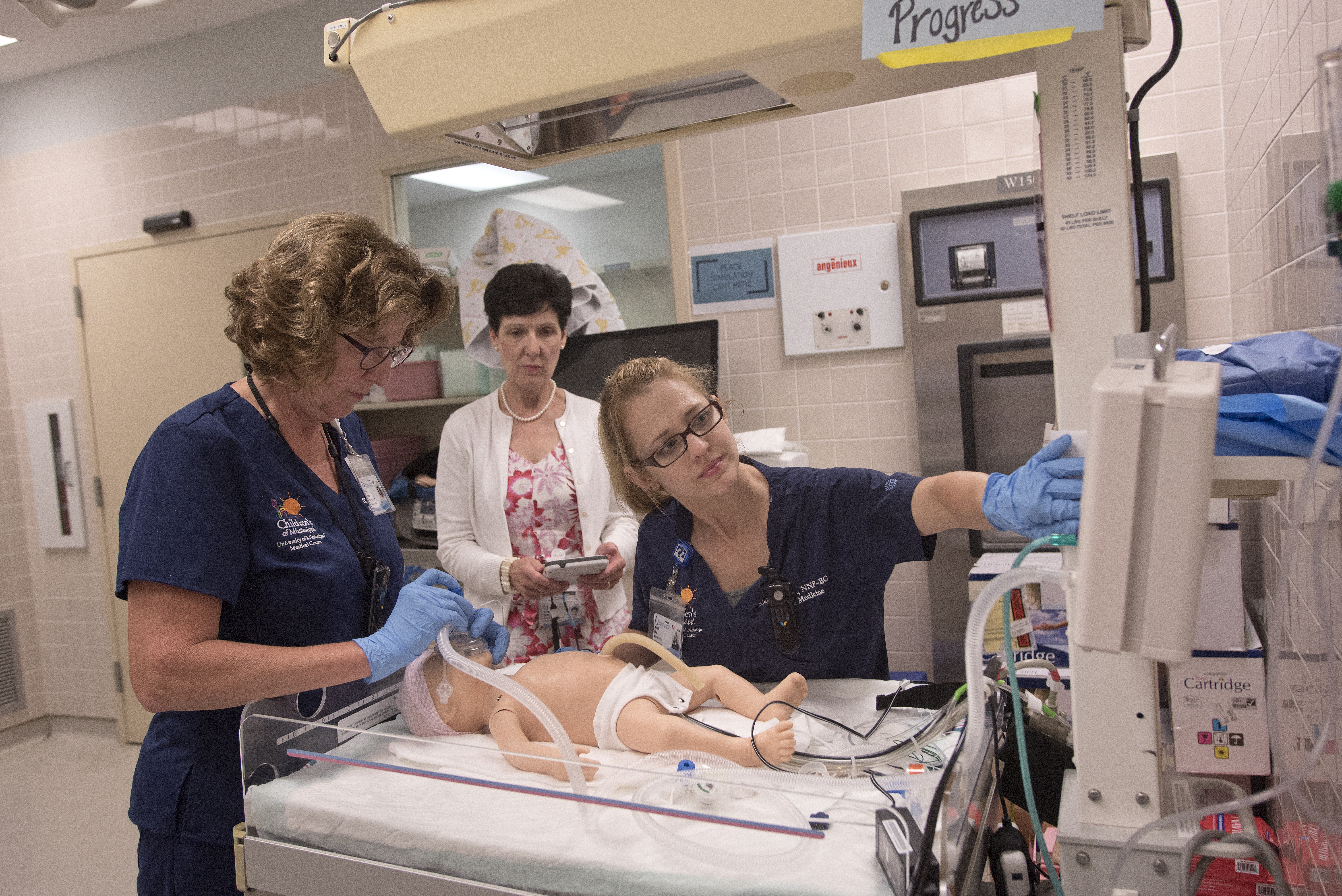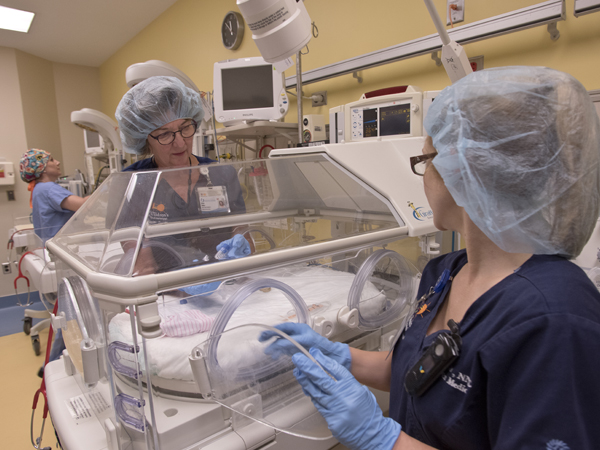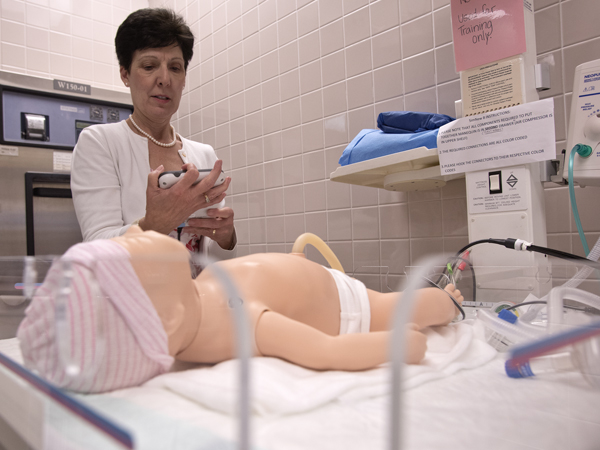New neonatal suite, simulation area give babies best possible start

About 2,500 babies are born at UMMC each year, but approximately one-third of them will need intervention at birth due to low birth weight, congenital defects or distress.
To give them the best start in life, the Madison Charitable Foundation donated more than $250,000 to create a new neonatal suite and a simulation lab that helps future and current medical professionals hone their skills to be ready for newborns. The suite and lab both opened last month.
The suite will provide a space where infants in need of intervention can be warmed and, if needed, resuscitated in the same bed they'll be in at the neonatal intensive care unit (NICU) nearby.
“This generous gift from the Madison Charitable Foundation has made sure the latest equipment to resuscitate babies is just steps away from them,” said Dr. Renate Savich, professor of pediatrics and chief of the Division of Newborn Medicine. “The infants never have to move from bed to bed, and they are not cold or stressed.”

Organization in the new space has been aided by new carts and shelving, and a blanket warmer helps infants stay warm in those first few minutes of life. A wider door makes sure medical professionals can access their young patients quickly.
The previous resuscitation space adjacent to the labor and delivery area where the highest risk babies are born was crowded and not designed for modern standards of care, Savich said.
Neonatal resuscitation has made significant advances in recent years, Savich said. Having beds that can accommodate the latest in medical equipment and ease babies' transitions from birthing suite to NICU will allow UMMC to offer state-of-the-art care.
The simulation lab's focus is a “newborn” that has a heartbeat, “breathes” and can go into all manner of distress. The medical professionals who come to this high-tech mannequin's aid get to prepare for neonatal medical emergencies before they happen by treating this little one. Cameras are in place so video can be replayed and analyzed, Savich said.

“Pilots don't prepare for emergencies in real jets,” she said. “They train on simulators. This allows us to do the same thing, so when an infant is in distress, we are prepared.”
A foundation focused on donating funds to help people in need without publicity or recognition, the Madison Charitable Foundation was formed in 2007 when native Mississippian Wiley Hatcher sold Universal Engineering in Houston, Texas. By 2011, the foundation had given more than $17.5 million to programs in education, arts, health, sports, museums, children's homes and medicine in Mississippi and nationally.
“Giving to Batson Children's Hospital is one of our favorite projects since the Madison Charitable Foundation was started in 2007,” said Joc Carpenter, one of the foundation's four directors. “We want to help give children a healthy beginning in life.”
Guy Giesecke, CEO of Children's of Mississippi, the umbrella organization that includes Batson Children's Hospital and all pediatric care at UMMC, said the gift will welcome some of the state's smallest and most critically ill babies with equipment that could be life-saving. “We at Children's of Mississippi are grateful to the Madison Charitable Foundation for their philanthropy toward families and children. The foundation is making it possible for children faced with medical crises early in life to not only survive, but thrive.”


